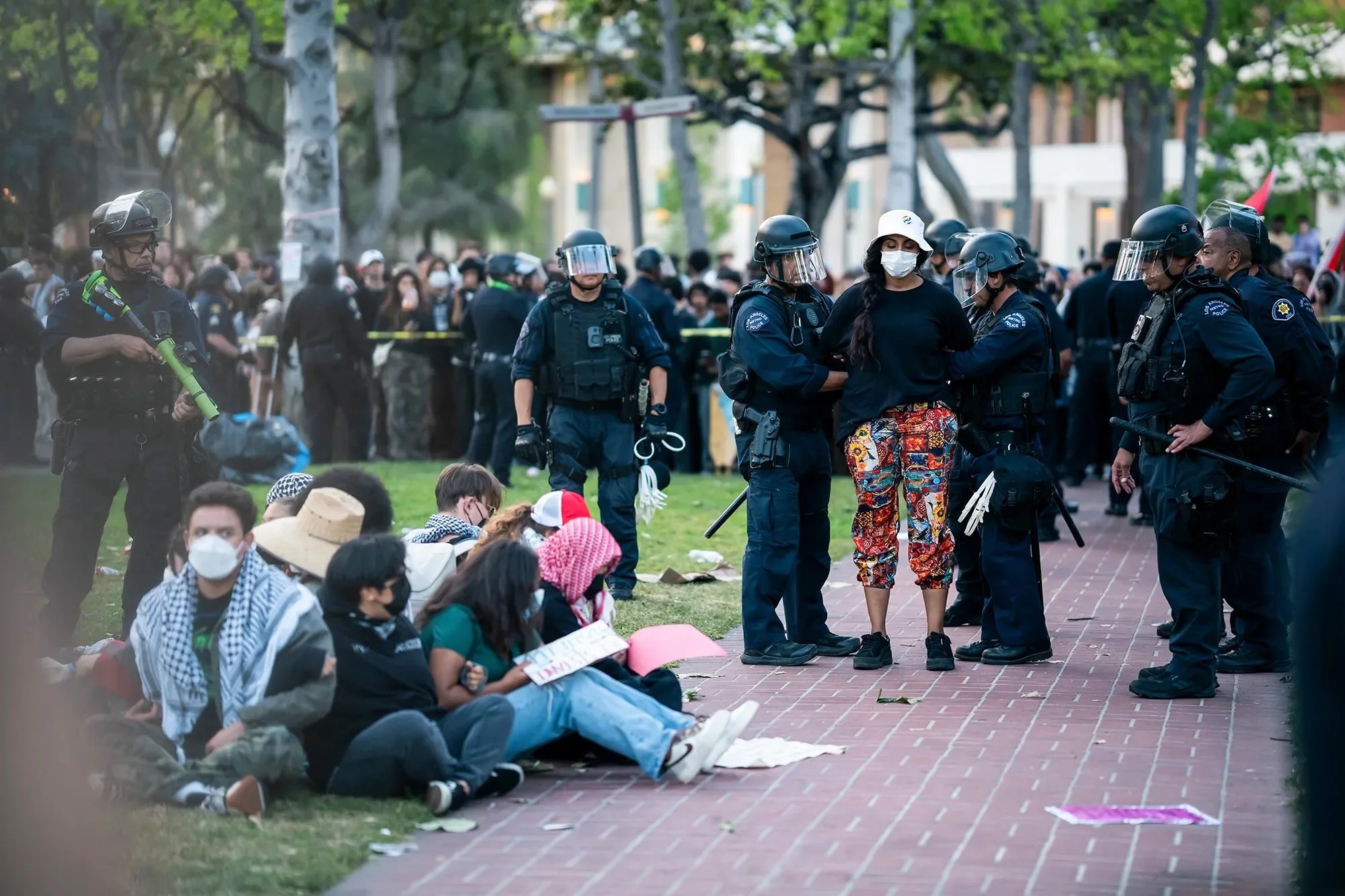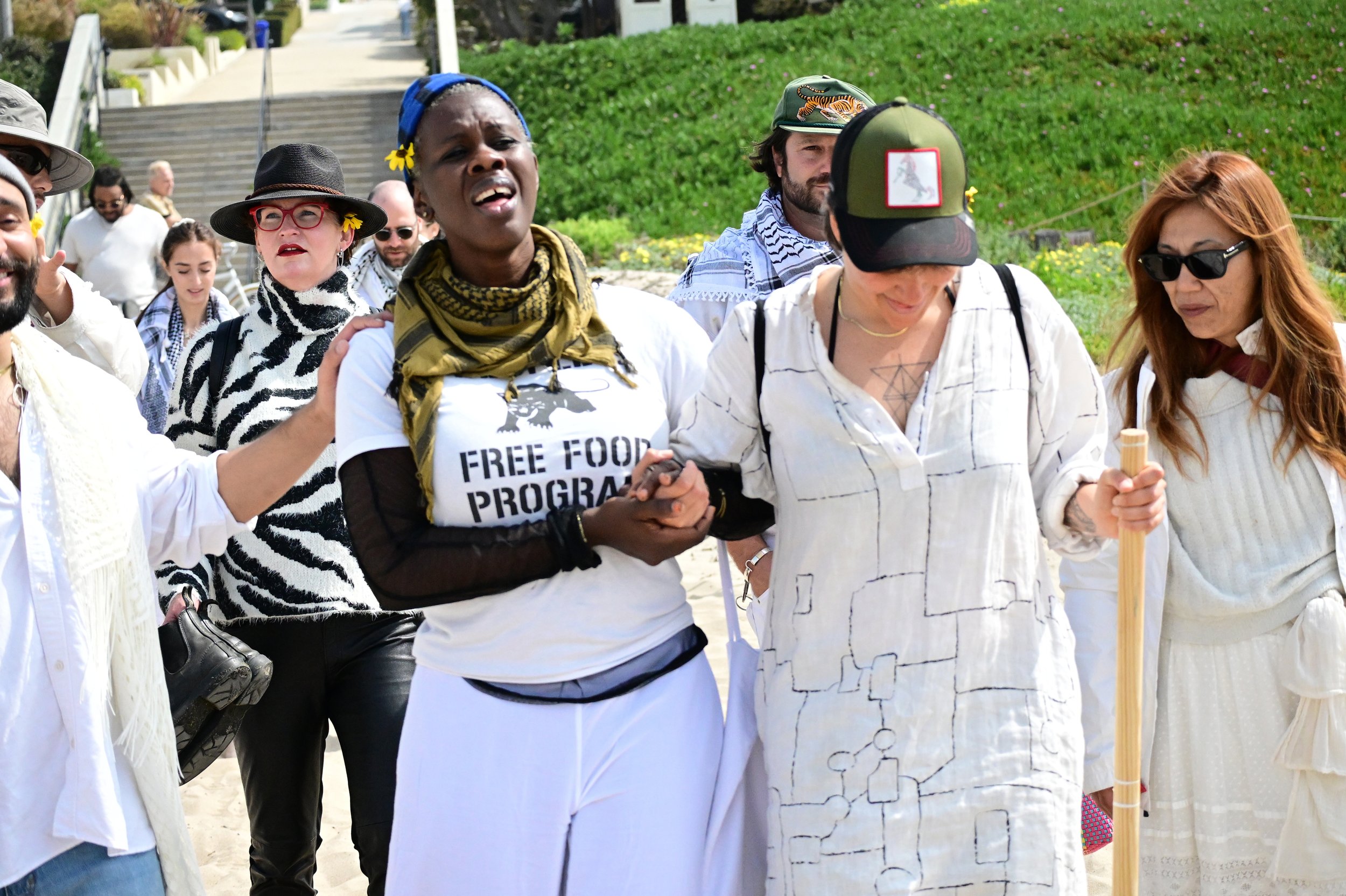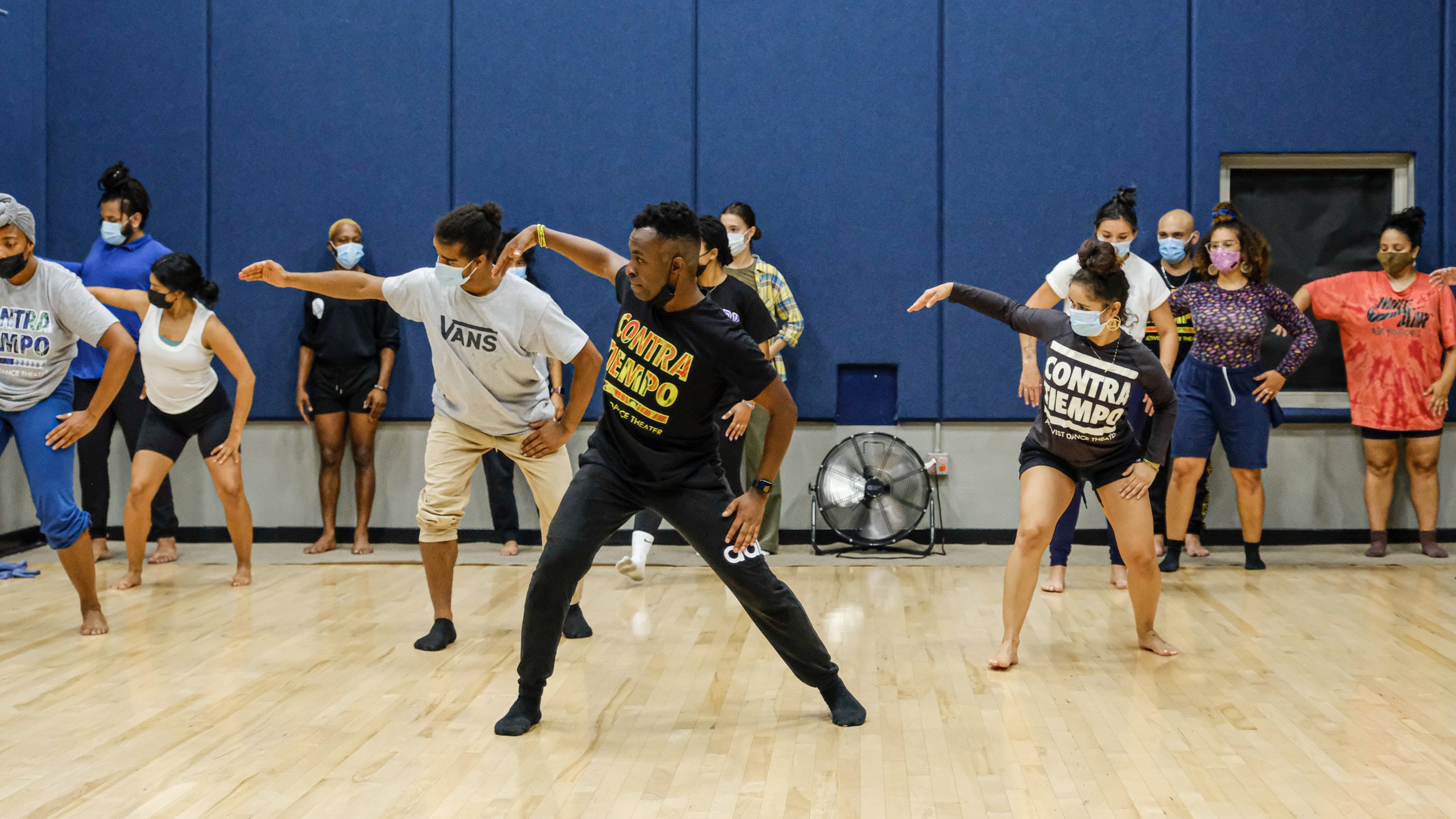The Ivory Tower's Dark Stain: Echoes of Jim Crow on Modern Campuses?
The global movement to free Palestine from senseles murder, attempted genocide, and decades of oppression by the Israeli government, has further exposed the contradictions, shortcomings, and gut-wrenching truths that is the backbone of higher education in America.
Academia, often romanticized as a haven for free thought and intellectual pursuit, has a complex relationship with justice and equity. While strides have been made, some argue that disturbing parallels exist between the Jim Crow era and the experiences of many students and faculty of color today. Let's examine how policing, protest suppression, and discriminatory hiring practices cast a long shadow on our institutions of higher learning.
Universities and colleges are notoriously terrible at community-based, shared knowledge, body-based learning. They prefer elitism, theory, individualism, isolationism, silos of thought, and reward superiority over others - none of these are values of community. Campuses continue to be sites for colonizing and colonized practices. They teach borders around disciplines. They shame bodies as primitive. Body-based technologies are seen as ‘blue collar’ and non-intellectual, and they give money to BIPOC bodies who want to be athletes while making it harder to achieve positions of leadership within the governance structures of the institute.
Elitism is toxic… it kills the seeds and roots of communities by covering them with the cement structures of patriarchy and western-white intellectualism which are built on fallacies about bodies that are not within white heteronormative standards. This is gatekeeping at its most obvious.
Literally Keeping the Gate
The presence of police on college campuses isn't a new phenomenon, but its purpose and form have evolved. The roots trace back to the late 19th century, with universities like Yale establishing early forces that functioned more like security guards. These "watchmen" primarily focused on protecting property and keeping unauthorized visitors off campus, reflecting a class-based concern rather than a focus on serious crime. However, The mid-20th century saw a shift. Student populations boomed after World War II, and concerns about campus disorder grew as college educations became more accessible to people that weren’t rich white men. Universities began to transition from a watchman model to a more proactive approach. This coincided with the rise of modern law enforcement techniques, leading to campus police forces mirroring their municipal counterparts.
The tumultuous 1960s further fueled the expansion of campus police. Social and political activism on campuses often clashed with university administrations. Local police brought in to quell protests used harsh tactics, leading some universities to believe their own forces could provide a more measured response. However, these early interactions between campus police and student activists continue to influence practices today and shape discussions about racial profiling and the appropriate response to dissent.
The Silencing of Dissent: Echoes of Oppression
The right to protest is a cornerstone of a healthy democracy, and universities, traditionally seen as breeding grounds for intellectual discourse, should be at the forefront of protecting this right. However, recent years have seen a worrying trend of protest suppression on college campuses. Peaceful demonstrations, particularly those addressing issues of social justice and racial inequality, have been met with heavy-handed tactics from university administrations and law enforcement.
These tactics can range from the seemingly innocuous, like requiring extensive permits for demonstrations that restrict locations and times, to the downright intimidating. Increased police presence at protests, often outfitted in riot gear, can create a chilling effect, discouraging students from exercising their right to free speech. In the most extreme cases, universities have used arrests, disciplinary actions, and even expulsion to silence dissent. This stifles open dialogue and prevents crucial conversations about important issues from taking place.
“Universities should foster an environment where dissent is not just tolerated, but encouraged.”
Acting as an authority that polices intellectual freedoms, human rights, free speech, right to assemble and protest, and can at any moment take possession of property and destroy shelters feels a lot like a repetition of the Jim Crow era. However, this time it’s riding into campuses in SWAT tanks with sniper rifles and weapons of war. To do what? - to stop college students in short shorts and flip flops from exercising the rights to free speech? This is a betrayal of an educator’s values to protect the rights of educational justice and liberty. The suppression of protest on college campuses not only undermines academic freedom but also hinders the development of critical thinking skills so vital for a well-informed citizenry. Universities should foster an environment where dissent is not just tolerated, but encouraged. Only then can campuses truly live up to their role as engines of social change.
The Ivory Tower's Hidden Gatekeepers: Qualifications and Bias
UCLA just posted an open position for dance faculty (as many institutes are searching also) where the credential mandate for the job is now a Ph.D. A practiced based, lived expertise, master of applied knowledge is now required to hold a theoretical doctorate degree to hold a full time teaching position? Make it make sense.
The professoriate, particularly in the arts and humanities, often demands an excessively narrow set of qualifications for tenure-track positions. This frequently prioritizes a specific pedigree over lived experience and diverse perspectives. The result? A lack of representation for minority scholars and departments severely starved of culture and community-based practices, mirroring the educational segregation of the Jim Crow South. Universities need to critically examine their hiring practices to ensure a faculty that reflects the rich tapestry of human experience.
White supremacy places higher value on knowledge obtained from a book rather than knowledge obtained in community. That is what is being argued - that community knowledge, street smarts, and experience has value. Absolutely, there is value in academic spaces. For example, colleges and universities have a unique opportunity to facilitate the experiential learning of students. Opportunities to perform and choreograph in college would not come so easily if one was not in college. With mentorship and guidance, a safe space to make mistakes is created because as a student you don’t have to endure the "real world".
While on a panel, a white male neuroscientist sits next to colleagues, one who is an Asian, female working in social and personal wellness through arts as liberation and a Native male who represents an organization supporting the rights of Indigenous people here in Los Angeles, and proceeds to speak about how after 30 years he has discovered a place called “South LA,” where UCLA is developing a massive multi million dollar center for social wellness based on the practices that are sourced from First Peoples. This new center highlights the white lab coats and predictably marginalizes the expertise of Indigenous, Native, and First Peoples. There is no equal funding for artists although they are extracting our practices and our expertise. There is no housing or shelter for artists in the new center. There is nothing that recognizes the knowledge and expertise of artists other than use us to benefit their agendas.
Expertise in traditions and technologies of social dances, liberation movements, and body languages are not developed in classrooms or in written papers putting into question the need for a theoretical degree when it comes to art forms and cultural traditions where expertise is defined through oral traditions, embodied transmission, and non-verbal communication. The MFA, and now the Ph.D, are required degrees for entering back into the institute as educators and professors. In many job postings for academic positions a terminal degree such as MFA and/or Ph.D is required, but a few listings suggest that an equivalency will be considered. The equivalence of professional experience and cultivated expertise to a Ph.D. is not readily accepted by hiring committees with elitist tendencies.
There is hope for the Academy. Artists-Activists-Academics are forging new pathways forward through the old systems that require the pageantry of degrees rather they value deep practice lived in their bodies. Leaders such as Ana Maria Alvarez, Taisha Pagget, Safiya Noble, Shamell Bell, Martha Gonzalez, Jose Calderon, Kent Wong, and many others are working boldly against these systems, many of which without the protection of tenure!
A Call for Transformation
Academia must confront these issues head-on. Rethinking campus security models, fostering inclusive hiring practices, and dismantling barriers to advancement for faculty of culture are crucial steps. Only then can academia live up to its ideals and become a true space for intellectual freedom and equity for all. How can we challenge these entrenched practices within academia? What are some concrete steps towards a more equitable learning environment?
Those of us working body-based technologies as artists, practitioners, and social scientists understand where the knowledge comes from… Does academia? Do funders? Do foundations? Academic campuses fund sciences and scientists at the highest levels while funding the arts and art practitioners at the lowest. Bodies are the original science. Bodies are the original art.
Here at CONTRA-TIEMPO, we create meaningful, impactful art through performative dance. Our physically intense and politically astute performance work moves audiences to imagine what’s possible. As a Los-Angeles-based activist dance company, we awaken people to a sense of themselves as artists and social change agents who move through the world with compassion and confidence. We wield the power of art to influence social change, live out our values, and teach others to engage in art activism! We value body-based intelligence, and recognize the importance of embodied learning. Support our movement by donating today and get a taste of embodied learning at our Futuro Summer Dance Intensive this August!
Bibliography:
Peak, K.J. 2018. Campus Policing. Oxford Research Encyclopedia. https://oxfordre.com/criminology/
Loewenberg, B. (2024, April 30). Are we repeating the mistakes of the 1960s? [Inside Higher Ed]. https://www.insidehighered.com/opinion/views/2024/04/30/are-we-repeating-mistakes-1960s-opinion






